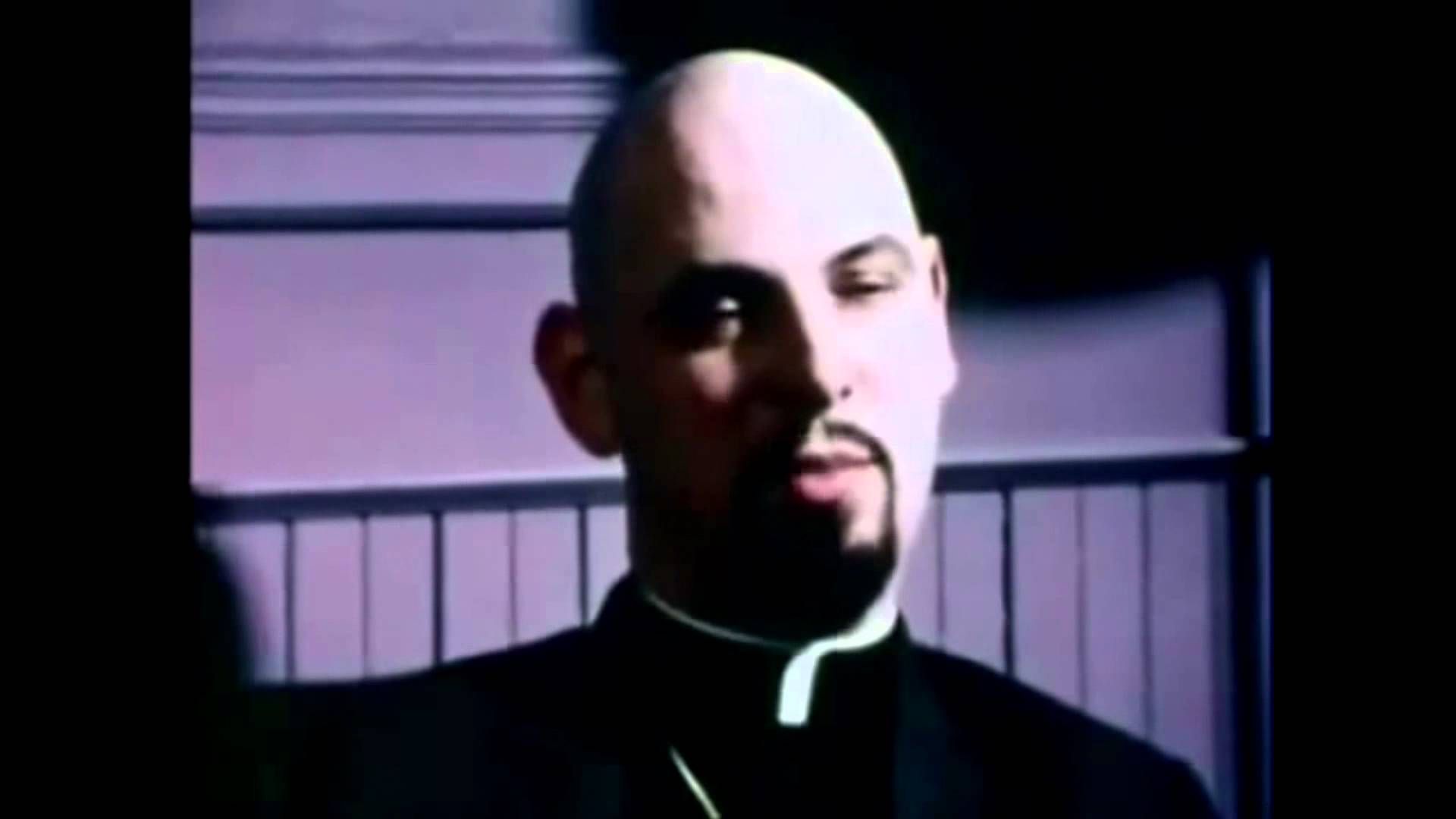Anton LaVey, a name that evokes intrigue, controversy, and fascination, remains one of the most polarizing figures in modern religious and philosophical history. As the founder of the Church of Satan and the author of *The Satanic Bible*, LaVey's influence extends far beyond the boundaries of traditional religion, touching on psychology, philosophy, and even pop culture. His ideas have sparked debates, inspired countless individuals, and challenged societal norms. In this article, we delve into the life, beliefs, and legacy of Anton LaVey, exploring how his contributions continue to shape discussions about individualism, freedom, and spirituality.
While many associate Satanism with evil or malevolence, Anton LaVey's version of Satanism was far from the stereotypical depiction. Instead, it championed atheism, rationalism, and the celebration of human potential. Born in 1930, LaVey grew up during a time when traditional religious beliefs were being questioned, and new ideologies were emerging. His journey from a carnival organist to the High Priest of the Church of Satan is a testament to his charisma, intellect, and ability to challenge the status quo. Understanding his life and teachings provides a unique perspective on the evolution of modern spirituality and the human condition.
This article will explore Anton LaVey's biography, his philosophical contributions, and the impact of his work on society. We will also address common misconceptions about Satanism and examine why LaVey's ideas continue to resonate with people worldwide. Whether you're a curious reader, a student of philosophy, or someone seeking a deeper understanding of alternative belief systems, this article aims to provide valuable insights into the life and legacy of one of the most controversial figures of the 20th century.
Read also:Jason Luv The Rising Star In The Music Industry
Table of Contents
- Biography of Anton LaVey
- Early Life and Influences
- The Founding of the Church of Satan
- The Satanic Bible: Core Teachings
- LaVeyan Satanism: Philosophy and Principles
- Common Misconceptions About Satanism
- Cultural Impact and Pop Culture
- Criticism and Controversies
- The Enduring Legacy of Anton LaVey
- Conclusion: Why LaVey Matters Today
Biography of Anton LaVey
Anton Szandor LaVey was born Howard Stanton Levey on April 11, 1930, in Chicago, Illinois. His early years were marked by a fascination with the occult, magic, and the macabre. LaVey's unconventional upbringing and exposure to diverse influences shaped his worldview and laid the foundation for his future endeavors. Below is a table summarizing key details about his life:
| Full Name | Anton Szandor LaVey |
|---|---|
| Date of Birth | April 11, 1930 |
| Place of Birth | Chicago, Illinois, USA |
| Date of Death | October 29, 1997 |
| Notable Works | The Satanic Bible, The Satanic Rituals |
| Legacy | Founder of the Church of Satan |
Early Life and Influences
Anton LaVey's early life was a blend of curiosity, rebellion, and intellectual exploration. Growing up in a working-class family, he developed an interest in the occult and magic at a young age. His fascination with the supernatural was fueled by visits to circuses, carnivals, and horror films. These experiences not only shaped his worldview but also instilled in him a deep appreciation for the dramatic and the unconventional.
Influential Experiences
- Worked as a lion tamer and organist in a carnival, which exposed him to diverse cultures and ideas.
- Studied philosophy, psychology, and criminology, which informed his later writings and teachings.
- Developed a critical view of organized religion, seeing it as a tool of oppression rather than liberation.
The Founding of the Church of Satan
In 1966, Anton LaVey officially founded the Church of Satan in San Francisco, California. This marked the beginning of a new religious movement that challenged traditional beliefs and championed individualism. The Church of Satan was not just a religious organization but a philosophical framework that celebrated human potential, rationalism, and the rejection of dogma.
Key Milestones
- April 30, 1966: Declared the official founding date of the Church of Satan.
- Published *The Satanic Bible* in 1969, which became the cornerstone of LaVeyan Satanism.
- Organized public rituals and events to promote the Church's teachings and attract followers.
The Satanic Bible: Core Teachings
*The Satanic Bible*, authored by Anton LaVey, is the definitive text of LaVeyan Satanism. It outlines the core principles of the philosophy, including the rejection of traditional morality, the celebration of the self, and the embrace of rationalism. The book is divided into four sections, each addressing different aspects of Satanism:
- The Book of Satan: Challenges the notion of sin and advocates for personal freedom.
- The Book of Lucifer: Explores the concept of individualism and self-empowerment.
- The Book of Belial: Focuses on the rejection of external authority and dogma.
- The Book of Leviathan: Provides guidance on rituals and symbolic practices.
LaVeyan Satanism: Philosophy and Principles
At its core, LaVeyan Satanism is a philosophy that emphasizes atheism, rationalism, and the celebration of the self. It rejects the idea of a literal Satan as a supernatural being and instead views Satan as a symbol of rebellion, enlightenment, and human potential. Below are the key principles of LaVeyan Satanism:
- Individualism: Encourages individuals to prioritize their own needs and desires.
- Rationalism: Advocates for critical thinking and skepticism of superstition.
- Self-Reliance: Promotes self-sufficiency and personal responsibility.
- Rejection of Dogma: Opposes blind adherence to religious or societal norms.
The Nine Satanic Statements
One of the most famous aspects of LaVeyan Satanism is the "Nine Satanic Statements," which summarize its core beliefs. These statements emphasize the importance of indulgence, vitality, and the rejection of guilt and shame.
Read also:How Old Is Diddy Unveiling The Age And Life Of The Legendary Sean Combs
Common Misconceptions About Satanism
Despite its philosophical nature, Satanism is often misunderstood and misrepresented. Many people associate it with evil, violence, or devil worship, which are far from the truth. Below are some common misconceptions about Satanism and the reality behind them:
- Misconception: Satanists worship the devil. Reality: LaVeyan Satanism is atheistic and views Satan as a symbol, not a deity.
- Misconception: Satanism promotes violence and chaos. Reality: It advocates for personal freedom and responsibility.
- Misconception: Satanism is a cult. Reality: It is a philosophy that values individualism and critical thinking.
Cultural Impact and Pop Culture
Anton LaVey's influence extends beyond the realm of religion and philosophy, permeating pop culture and media. His ideas have inspired musicians, filmmakers, and writers, contributing to the enduring fascination with Satanism. Below are some examples of his cultural impact:
- Musicians like Marilyn Manson and King Diamond have cited LaVey as an influence.
- Films such as *Rosemary's Baby* and *The Devil's Advocate* reflect themes of rebellion and individualism.
- Books and documentaries exploring Satanism often reference LaVey's work.
Criticism and Controversies
Despite its philosophical foundation, LaVeyan Satanism has faced criticism and controversy. Critics argue that its emphasis on self-indulgence and rejection of traditional morality can lead to ethical dilemmas. Additionally, the Church of Satan has been accused of sensationalism and exploitation. However, supporters maintain that its principles promote personal freedom and intellectual growth.
The Enduring Legacy of Anton LaVey
Anton LaVey's legacy is a testament to his ability to challenge societal norms and inspire critical thinking. His ideas continue to resonate with individuals seeking alternative belief systems and a deeper understanding of the human condition. The Church of Satan, though controversial, remains a symbol of rebellion and intellectual exploration.
Conclusion: Why LaVey Matters Today
Anton LaVey's contributions to philosophy, religion, and culture are undeniable. His rejection of dogma, celebration of individualism, and advocacy for rationalism offer valuable insights into the human experience. Whether you agree with his ideas or not, LaVey's work challenges us to think critically about our beliefs and values. We invite you to share your thoughts on this article, explore related topics, or delve deeper into the world of alternative philosophies. Your engagement helps foster meaningful discussions and promotes intellectual growth.

